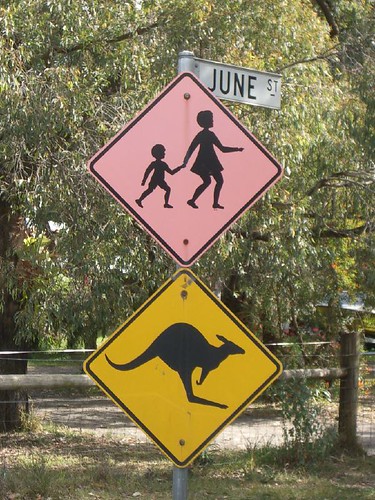 It seems like we just finished the last one, but here it comes again… the next Social Media for International Development Sector Workshop from the ICT-KM Program of the CGIAR. I’m really looking forward to facilitating it with Simone and Pete!
It seems like we just finished the last one, but here it comes again… the next Social Media for International Development Sector Workshop from the ICT-KM Program of the CGIAR. I’m really looking forward to facilitating it with Simone and Pete!
“Social media is using the Internet to collaborate, share information, and have a conversation about ideas, and causes we care about, powered by web based tools.” – [We Are Media]
Background
From the learnings from the successful pilot (See blog posts about the event), and second Social Media Online Workshop, the CGIAR through its ICT-KM Program, is pleased to offer a new online opportunity for social media explorations, this time with the specific objective to embed social media in participants’ contexts of international development work. This fully online workshop will run from September 7 to 25, 2009.
Social media offers international development practitioners and organizations a move from “push” communications towards a place where we can interact with our constituents, listen and engage with them in ways we never could before. It enables us to network with colleagues and some stakeholders. If facilitates collaboration in the lab and in the field.
Social media also offers so many options that it can be overwhelming. This workshop focuses on exploration of social media from some specific international development contexts. So instead of saying “there is a tool, how can we use it,” this workshop seeks to answer “we need to do this activity, how can social media support it and under what circumstances.”
If you ask yourself questions like these, you might consider joining the workshop:
- How can I support collaboration in wide-spread teams?
- How can I provide opportunities for open dialogue with my stakeholders?
- How do we support communities of practice and thematic networks, online and offline?
- How do we share our content and knowledge effectively online?
- How can we make use of social media under low-bandwidth constraints?
This online workshop is designed for researchers, research and development communications professionals and knowledge sharing practitioners.
Objectives of the workshop
This three week online workshop will provide a collaborative, peer based learning opportunity for you, as development practitioners, to address if and how social media can help address your needs, opportunities or challenges related to collaboration, participation, or communication. By the end of the workshop you should be able to understand and analyze the opportunities that social media can offer in the view of your specific research and development context, identify some potential tools and create a plan of action.
During this workshop you will:
- Identify possibles usages of social media through small group synchronous and full group asynchronous conversation, exploring opportunities and constraints related to your work.
- Obtain an understanding and appreciation of the role and value of social media.
- Explore 2-3 different social media tools which may be appropriate for your context.
- Start to plan the implementation of one or more social media tools that fit our work environment.
- Learn from participants of mixed professional and organizational backgrounds.
Outline of the 3-week event
- Week 1 to 2 – Context and Application of Social Media: Introductions, and telephone conversations in small groups to assess your research for/and development context and identify opportunities for social media practices.
- Week 2 to 3 – Testing Social Media Tools. Explore select social media tools in small groups.
- Finalizing week 3 – Reflection for Action. Reflect on individual and group learning of the past two weeks and create an initial plan for social media implementation.
Maximum Number of participants: 18
Language: English
Participant Requirement/Dedicated time: This workshop offers an in-depth exploration of social media tools adapted to your specific context with personalized support and work in small groups. To do this, we ask the following of each participant:
- Organize your agenda to dedicate up to 1-1/2 hours per day during the three weeks. If you will be on travel and won’t have time in a particular week, save some time for “catch up.” If you will not be able to participate in more than one week, please consider taking a future workshop. It will become hard to catch up after missing significant time.
- Participate in weekly telecons of 60-90 minutes. These are scheduled for the afternoons for those in Europe and Africa, mornings for North and South American, and evenings for Asia. We will try to accomodate all time zones as best we can.
- Read and respond to blog posts
- Explore at least 2 tools
- Reflect and share your learnings on the workshop blog and wiki
- Complete a pre- and post-workshop survey.
Open to: CGIAR staff, not for profit partners, agricultural and development organizations. Individuals, consultants and members of for profit organizations may join on a space available basis as the unsubsidized rate. (See costs below)
Platform: Blog, Skype and/or telephone, email and wiki. Our teleconference platform allows you to call for free using Skype. If you choose to use a landline for the conference calls, you will be responsible for long-distance costs. You should have regular access to the Internet. Some tools may not be accessible for those with low bandwidths. You may need to check with your IT department, as some web-based services you wish to explore may be currently blocked in your organization and you may need to seek support to access them.
Facilitators: Nancy White (Full Circle Associates), Simone Staiger-Rivas (CGIAR-CIAT), Pete Shelton (IFPRI)
Cost: USD$ 850 for people who work in international development/NGO organizations, USD$ 1050 for those who work for for-profits or are consultants.
Contact: Please write to Simone Staiger-Rivas (s.staiger[at]cgiar.org) for questions and subscription
 Are you one of my Australian pals? Interested in spending time learning and talking about some shared interests? Well I’ll be down under for nearly three weeks in November.
Are you one of my Australian pals? Interested in spending time learning and talking about some shared interests? Well I’ll be down under for nearly three weeks in November. Chris Lott posted a really important bit at the end of his
Chris Lott posted a really important bit at the end of his  I have been following the twitter hashtag
I have been following the twitter hashtag ![Reblog this post [with Zemanta]](https://img.zemanta.com/reblog_e.png?x-id=9921f054-da94-4373-bf62-d1ff9bb531c2)
 It seems like we just finished the last one, but here it comes again… the next
It seems like we just finished the last one, but here it comes again… the next